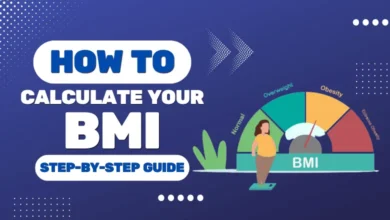This Is How to Mentally Recover From a Car Accident

Did you know that in the U.S., there are over 5 million car accidents every year? And about 43% of those accidents actually result in injuries. Car accidents are frightening, traumatic experiences that can leave lasting mental scars.
You might be left wondering how to mentally recover from a car accident. You’re not alone, and it’s important to remember that help is at hand. Whatever the issue is, there are strategies and resources available that can assist you in overcoming these challenges.
Imagine regaining your confidence, being able to drive without fear, and maintaining your mental health after such a traumatic event. Picture yourself back in control, not only on the road but also of your life.
Being in an auto accident can be very scary, but you can bounce back. Read on to discover actionable tips on how to mentally recover from a car accident.
The After Effects of a Car Accident
It’s normal to experience a range of emotions after being in an accident. You might feel scared, angry, or guilty for something that was out of your control.
It can be difficult to shake off these negative feelings and regain the confidence you had before the accident.
You might also suffer from physical symptoms like headaches, neck pain, or anxiety. These symptoms are called post-traumatic stress disorder (PTSD).
The good news is that there are ways to cope with these issues.
How to Mentally Recover From a Car Accident
Different types of car accidents can leave a different lasting effect. For a small bump, you might feel anxiety for a few days, while a more serious accident can lead to PTSD.
Regardless of the severity, here are some tips to help you mentally recover from a car accident:
Acceptance
Accept what happened and move on: It takes time to process an accident but it’s important to remember that you cannot change what has already happened. Take the time to grieve, process your emotions, and learn from the experience.
Seeking Professional Help
Reach out for professional help if you find yourself struggling with mental health issues: Counseling can be very beneficial in helping you cope and move forward. Your doctor can also provide support and advice on how to manage PTSD symptoms.
Use Legal Services
Car accident injuries can impact your work-life balance. Hiring a lawyer can help alleviate the stress of your accident. They can provide expert advice and assistance in dealing with insurers, medical bills, and compensation.
You might have a case for a car accident claim if you have suffered injuries or losses as a result of the accident. Click for car accident lawyer to see what you could be entitled to.
Self-Care
Take care of yourself by making time for yourself and doing the things that make you feel happy and relaxed. Exercise, meditate, or spend time in nature-anything that helps you to relax and unwind.
Connect With Others
Talk it out with friends and family: It can be helpful to talk about your emotions with someone close to you. If your friends & family don’t understand what you’re going through, join a support group where you can connect with people who have experienced similar trauma.
Positivity and Gratitude
Focus on the positives and practice gratitude: It’s easy to feel down after a traumatic experience, but it doesn’t need to be that way. Practice positivity and gratitude by writing down 3 things that you are grateful for each day, or make a list of all the good things in your life. This will help to put things into perspective and remind you of the beauty in life.
Guided Imagery
This technique is a mental exercise used to visualize yourself in a peaceful and calming environment. Close your eyes, take some deep breaths, and imagine yourself in a place that relieves stress and anxiety. You may find it helpful to do this with the help of an audio recording or guided meditation.
Take It Slow
Do not rush the recovery process. The road to full mental health can be a long one, so don’t expect yourself to be fully healed overnight. Take it slow and allow yourself some time to heal both physically and mentally.
Take Care of Your Physical Health
To heal mentally, it’s important to take care of your physical health. Get plenty of rest & exercise. Exercise can take your mind off things and also releases the happy hormone endorphins.
Reestablish a Routine
When the world feels like it’s spinning out of control, having a consistent routine can help you to feel more in control.
Making sure you get up at the same time each morning and go to bed at the same time every night can provide structure and consistency when all else feels chaotic. Plus, routines make it easier to carve out time for self-care.
Keep a Journal
Writing down your thoughts and feelings can be an effective way to process what you’ve been through. It’s a great way to document your journey as you regain your mental health.
Having a journal is also a good way to track your progress, and also can be used as evidence if you have a legal case.
Ready to Start Your Journey to Recover?
Knowing how to mentally recover from a car accident is an essential part of the healing journey. It’s a process that involves patience, self-care, and a lot of self-love. While the road may seem daunting, these steps can guide you toward regaining your mental health.
For more useful articles and resources on maintaining mental health, visit our website. There, you’ll find a range of resources to start getting your life back on track today.
Also read:






